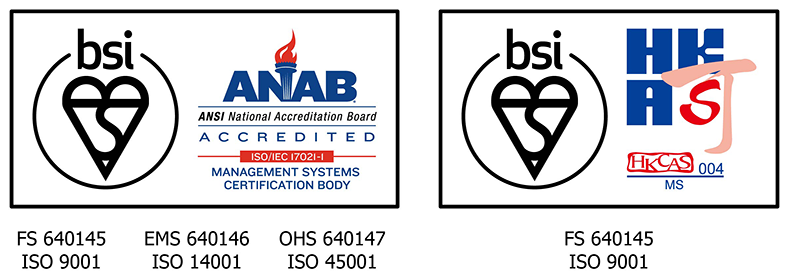Mosquitoes and flies are insects belong to the order Diptera. Although not all mosquitoes and flies are pests, a number of outbreaks of mosquito or fly borne diseases in the last centuries have imposed disastrous health hazards on human beings. For examples, malaria, yellow fever and dengue fever transmitted by mosquitoes; and cholera, dysentery and typhoid transmitted by flies.
Besides, mosquitoes and flies are named as urban pests because:
- Cause Nuisance
Biting by some mosquitoes and flies often develops itching that would affect people's sleeping and rest. Flies flying around eating-place are also annoying. - Contaminate Food
Some flies such as the house flies, bottle flies and flesh flies often land and feed on surfaces of garbage, animal excreta, etc. They will then contaminate clean food items when they get into kitchens and restaurants, etc. - Contravene Legal Requirements
Mosquito and fly are defined as pests in some legislation. For examples, under some public health legislation, it may be prosecuted for not eliminating mosquito breeding places or infestation with mosquitoes and flies in food premises.
There are more than 70 mosquito species in Hong Kong and the commonly known ones are Aedes albopictus and Culex tritaeniorhynchus. There are also many fly species in Hong Kong and common pest species include house flies, Musca domestica, bottle flies, Chrysomya megacephala, biting midges, Ceratopagonidae and humpbacked flies, Phoridae sp.
Integrated pest management for mosquitoes and flies comprises mainly environmental control and supplemented by mechanical and chemical control measures. Baguio Mosquito and Fly Control services provide professional pest surveys and proposals on integrated management.
Environmental Control
Sanitation is the method to eliminate favorable conditions for mosquito and fly breeding in the prevention of infestations.
For mosquito prevention:
- Clear choked drains and maintain water flow.
- Remove stagnant water as far as possible.
- Clear watercourses of waste, tree branches, leaves, rocks and other articles and make sure water flows freely.
- Clear discarded waste regularly and particularly, articles such as buckets, cans, tires, flower pots, bottles and plastic bags that can hold water.
- Fill up holes in trees, etc.
- Inspect and repair water pipes and drains regularly to prevent leakage or mosquito breeding.
- Trim bushes and trees regularly to reduce habitats for adult mosquitoes.
For fly prevention:
- Store garbage in containers with fitted lids.
- Dispose of garbage, food remnants in particular, and clean waste bins everyday.
- Clear organic and grease matters and wash dirt on roads regularly.
- Never over irrigate landscape and grasslands.
- Clear leaves and sludge from soil grounds and drain channels regularly.
- Trim bushes and trees regularly so as to have direct sunlight shining on soil grounds.
Mechanical Control
Mechanical control is to use devices to trap mosquitoes and flies. This method cannot totally eliminate the problem but may usually mitigate nuisance caused by the insects.
Mechanical control devices include the UV-light traps, outdoor CO2 mosquito traps, fly trapping bottles and adhesive insect trapping sheets. These devices are usually used in some sensitive areas such as playgrounds, restaurants, kitchens and hospitals.
Chemical Control
Chemical control will only implemented when environmental control measures are impractical. Appropriate pesticides and application methods will be selected to kill larvae and adults of mosquitoes and flies under different circumstances.
- Mosquito Larvae
Pesticides such as larvicidal oil, temephos, bio-pesticide (B.t.i.) or insect growth regulator will normally be applied to water to kill mosquito larvae. - Fly Larvae
It is ineffective to apply residual or contact insecticides to kill fly larvae which are hiding below debris or soil surfaces. Application of temephos may control the growth of some fly larvae (e.g. larvae of biting midges) under some conditions. - Adult Mosquitoes and Flies
In general, fogging of pyrethroid insecticides at the habitats of mosquitoes and flies could reduce their populations. If necessary, spraying of residual insecticides on surfaces of structures could kill some insect adults resting on them. Under special situations, poison baits could be used to kill adults of house flies.
To learn more on Baguio Pest Control Services, please contact us.





